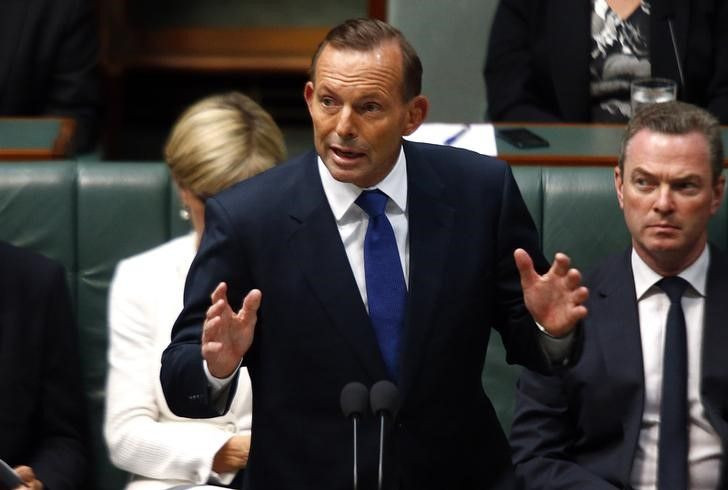ISIS Foreign Fighters: Dual Nationals To Lose Australian Citizenship Under Proposed Laws

Dual Australian nationals fighting for militant groups overseas face losing their citizenship under a new proposal unveiled by Prime Minister Tony Abbott on Tuesday. The legislation, which is designed to curb the flow of fighters to the Islamic State group in Iraq and Syria, will be introduced in the parliament “first thing” Wednesday morning, according to local media reports.
“Our country does face a serious terrorist threat, particularly over the last 12 months with the rise and rise of Daesh [ISIS],” Abbott reportedly said at a press conference on Tuesday. “Our intention is always, as far as we humanly can, to stop people from becoming terrorists in the first place. If people have become terrorists, our intention as far as we humanly can is to stop them coming back.”
The move, which the Australian government has been mulling over for weeks, seeks to amend a section of the country’s Citizenship Act and would only apply to dual nationals. It is not yet clear what the government plans to do with militants who are solely Australian nationals.
As of now, over 20,000 foreign nationals are believed to be fighting for various militant groups, including ISIS, in Iraq and Syria. This includes over 100 Australian nationals.
“There are two broad circumstances under which people will forfeit their citizenship. The first is renunciation by conduct. The second is revocation by conviction,” Abbott reportedly said. “So if you engage in terrorism against Australia, as is currently the case with section 35 [of the Citizenship Act] in respect of a foreign Army, you will automatically forfeit your citizenship.”
So, under the proposed changes, dual nationals could lose their Australian citizenship even without conviction. Abbott added that the Joint Standing Committee on Intelligence and Security would also consider whether the law should be allowed to operate retrospectively.
“As drafted, it is prospective, but given that we have a number of dual citizens currently in jail after terrorist convictions, the committee should consider whether it should have retrospective operation at least in those cases,” Abbott reportedly said.
The latest proposal is believed to be a watered down version of an earlier one, which faced fierce criticism by several members within Abbott’s cabinet for the overarching powers it gave to one single official, the Australian minister for immigration and border protection.
“As Australians, we will never, ever, sacrifice our freedoms, but we will defend them - that's what this legislation is all about,” Abbott reportedly said.
© Copyright IBTimes 2024. All rights reserved.





















